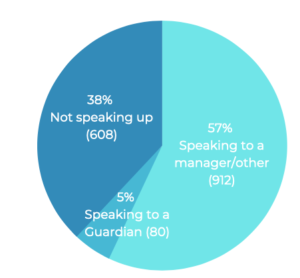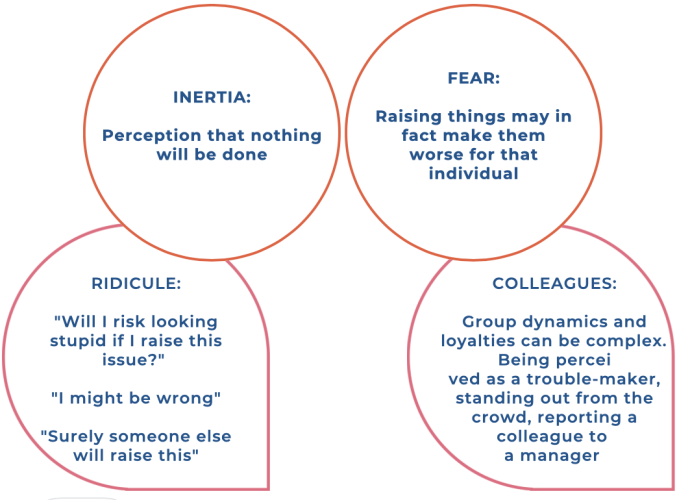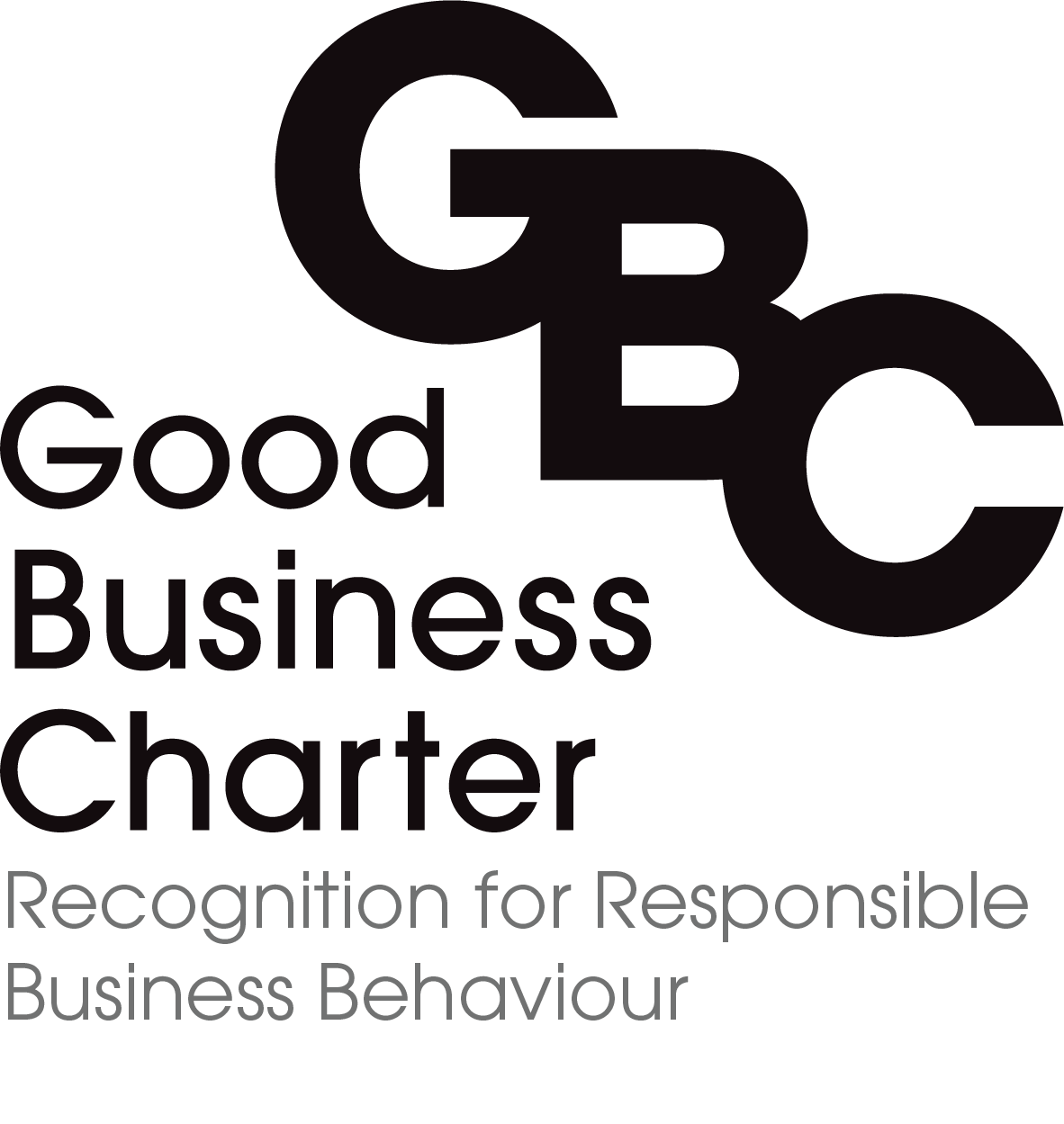 Freedom to speak up month
Freedom to speak up month
An important calendar event for The National Guardian’s Office (NGO) is Speak Up month in October which aims to raise awareness on the importance of speaking up and the role of Freedom to Speak Up Guardian’s (FTSU).
This year, the month has three focus themes: Speak up for safety, Speak up for Civility, Speak up for Inclusion, Wear Green Wednesdays
Ignoring safety & respect can lead to the following challenges and have a high probability of impacting on patient care and staff wellbeing.
- Reduced performance
- Harm to the staff members concerned (and maybe colleagues).
- Increased illness/sick leave
- Presenteeism
- Reduced engagement
- Harder to recruit quality talent
- Increased risk as people fear raising safety of wrongdoing
- Reputational risk when things go wrong
- Fundamental organisational failure when problems are left to multiply
- Reduced agility as fear stops people contributing
How Freedom to Speak Up came about
Freedom to Speak Up Guardians are in situ following a review by Sir Robert Francis QC in November 2013 of challenges with people being able to speak up in the NHS. His conclusion was that there was a serious issue in the NHS with whistleblowing and speaking up that:
“requires urgent attention if staff are to play their full part in maintaining a safe and effective service for patients”
A number of recommendations were made to deliver a more consistent approach to whistleblowing and speaking up across the NHS and the report identified the importance of Freedom to Speak Up to this process
Who is speaking up to FTSU Guardians?
 Our analysis of Speaking Up suggests that in a Trust of 5,000 people each year 1,600 people have a Speaking Up matter they need to raise. How and whether they raise it appears to be as follows:
Our analysis of Speaking Up suggests that in a Trust of 5,000 people each year 1,600 people have a Speaking Up matter they need to raise. How and whether they raise it appears to be as follows:
- 62% of NHS staff who completed the 2021/22 staff survey reported they feel safe to speak up about anything which concerns them in the organisation. The breakdown for different routes appears to be 57% speak up to a manager and around 5% to a Freedom to Speak Up Guardian
- 38% of staff who completed the survey did not feel safe to speak up.
When we look at bullying and harassment, 12% of staff report having been bullied and harassed by a manager and 19% by a colleague in the last year – but only 48% raise it.
That could mean that within the NHS in England 242,000 people who are not speaking up about bullying and harassment alone.
What stops people from speaking up?

Get your speaking up culture in the right place with our Resources - Free to download
The Definitive Guide to Workplace Bullying
Download the guide and learn how to create a zero tolerance workplace culture and give people a voice
#SpeakUpforSafety
Download this flyer to use in your Trust.
Everyone in the NHS has a part to play in making it safe, respectful, effective and compassionate.
Case Study: Somerset NHS Foundation Trust
“The system has already, and continues to offer, a great deal of value because of its anonymous utility and the quality of the feedback that the team is receiving”
#SpeakUpforCivility
Download our infographic to share with your teams to highlight why civility matters
How we support the work of the FTSU Guardians in the NHS
Whilst many staff are speaking up to a Manager or a Guardian 38% of staff with a problem are not speaking up to anyone.
We believe everyone should be able to do their job without compromise and to the best of their abilities. “Almost all excellence in healthcare is dependent on teams, and teams work best when all members feel safe and have a voice” (NGOWorkInConfidence work extensively within many NHS Trusts in England and provide a secure, trusted and anonymous route to raising concerns. This can enable the reticent to start a conversation with the Guardian.
You can safely voice concerns or ideas to improve patient safety to a designated manager or FTSU Guardian – whilst protecting your identity and removing the barriers to speaking up like fear of repercussion or bullying and harassment.




